Living Labs
10 multi-actor Living Labs are here to cover all adaptation and mitigation measures in all European pedo-climatic areas
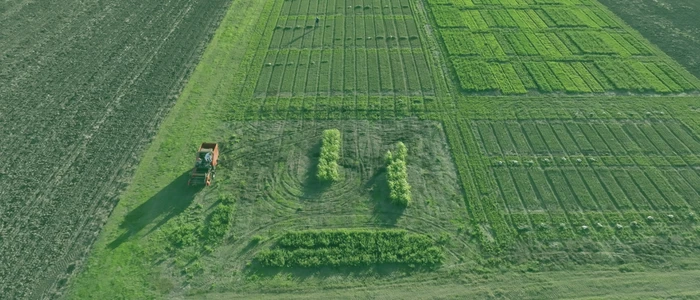
FERTY: Feed fertilization crops and energy

Italy
Via Beccastecca, 345, 41018 San Cesario sul Panaro (MO)
Agricultural and livestock systems can be important sources of GHG and NH3 emissions (specially pig farming). which are harmful to the health and welfare of animals and of the farmers. Furthermore, especially in the northern of Italy it has not been possible to maintain adequate levels of soil organic matter (SOM), due to high exploitation of the soil to increase agricultural production. This requires the development of new climate-smart solutions to reduce these emissions and increase SOM.
The aims of the Italian LL are first to decrease GHG and NH3 emissions trough, new feed formulations with lower crude protein (CP) content and partial replacement of corn and soy with alternative and local crops and the optimization of the manure management by using it in a biogas plant and second to increase the soil organic matter (SOM) using digestate, crop rotations and conservative agriculture according to the principles of the “BiogasDoneRight®” model in the heavy pig production chain.
Farmers (pig farmers),
Research bodies (CREA and CRPA),
Policymakers (Emilia- Romagna region),
Feed producers,
Agricultural machinery manufacturers,
Green Energy producers (CIB),
Farmers associations (Associazione Nazionale Allevatori Suini-ANAS),
Agry food industry (PDO Parma Ham Consortium)
Sara Carè, CREA
Alessandro Zatta, CRPA
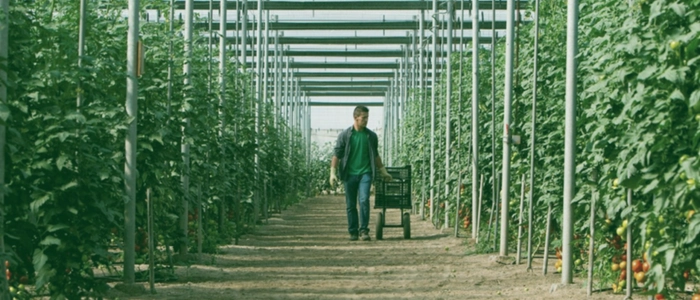
Almería Agroecology Living Lab

Spain
Ctra Sacramento, S/N, 04120, La Cañada de San Urbano (Almería)
The scarcity and overexploitation of local resources, mainly water, pose a major climate challenge in the world and especially in the province of Almeria. The increase in the world population demands an increase in production. Factors such as climate change, increased salinity in freshwater sources and the intensification of agriculture require the use of new technologies to optimize local water resources.
To address Almería’s climate challenge, it is imperative to leverage innovative technologies like osmosis and membrane desalination which optimize water resource utilization. The integration through a common system of various water technologies (e.g., desalinization and reverse osmosis) allows for a responsible and sustainable use of those resources. In addition, the adoption of these developments by the value chain is promoted in order to give added value to the solutions to be implemented.
University of Almería (UAL)
Agricultural and Fisheries Information Institute (IFAPA)
Jorge Sánchez, UAL
Cynthia Giagnocavo, UAL
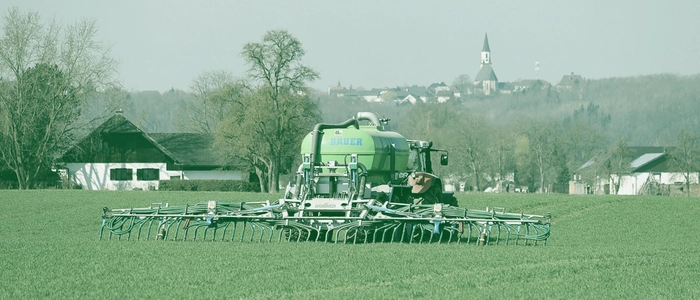
Biogas Västra Skaraborg

Sweden
SWEREF99 TM: 6465003 374090
Reduction of GHG emissions and increase of soil organic
matter (SOM).
The LL will lead to a more resource-efficient use of manure and reduced greenhouse gas emissions.
The Living Lab will focus on setting up, building, and operating a biogas plant through joint ownership. About 100 farmers own shares in the company and the majority will deliver manure from their farms to the biogas plant. Several challenges have been identified – to build and operate a biogas plant by a cooperative of farmers and to obtain a fair distribution of the digestate and profits in the company. But through joint ownership, the biogas plant will be more profitable than a smaller farm plant. Biogas reduces greenhouse gas emissions and is important for achieving our climate goals. Biogas contributes to a more circular and resource-efficient economy by taking manure and converting it into energy while returning plant nutrients to the soil.
Agroväst Livsmedel AB (AGROV)
Agnes Falkenberg Brolin, Agroväst
Andrea von Essen, Agroväst
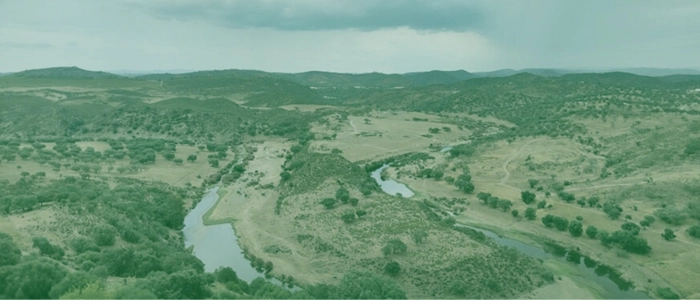
Montado. Fighting desertification in the South of Portugal

Portugal
Southeast Portugal
According to Godinho, between 1990 and 2006, approximately 90,054 ha of Montado disappeared in the Alentejo region, with an estimated annual regression rate of 0.14% year−1. Several issues contribute to this severe outcome, among which the following are very relevant:
• Poor soil for cultivation
• Drought
• Biodiversity struggle
• Low yields
• Low diversification of income
• Lack of technical knowledge
• Bad knowledge flow
• No coordination between existing national and regional projects
The montado is a complex mix-system and its success depend on a series of different factors that involve constant monitorization, technical knowledge, and cooperation across the value chain of the products generated. The region suffers a desertification process in dryland areas, which must be reversed.
Development, testing, and promotion of sustainable practices to enhance soil health, restore tree cover, and foster ecological and socio-economic balance in Montado.
6 Research Institutes including the University of Évora
8 Associations and Public Entities
4 companies including CONSULAI
21 Farmers with long-term experimental plots
Beatriz Almeida, CONSULAI
Maria Mendonça, CONSULAI
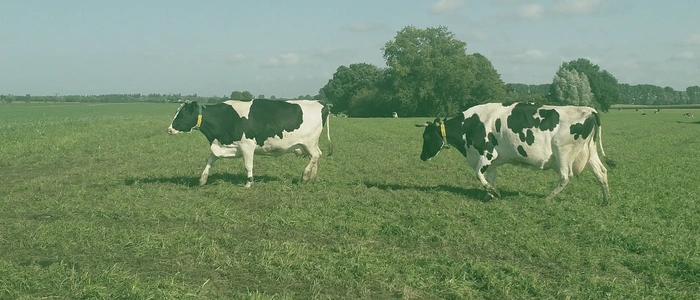
Opportunities to mitigate farm GHG emissions and increase farm resilience

Germany
Max-Eyth-Allee 100, 14469 Potsdam
Thermal and rainfall anomalies, increasingly dry conditions, decreasing soil carbon, heat stress affecting animal welfare, health and productivity, are posing increasing threats to farming systems. Technological and agro-ecological solutions to increase farm resilience are needed.
Precision farming / precision livestock solutions to mitigate greenhouse gas emissions and increase resilience of livestock farms and mixed farms, e.g.:
- crop-livestock integrated systems;
- targeted cooling of the barn and early warning system for heat stress rapid manure removal,
- biogas and upgrade to biomethane soil/manure C and N sensors,
- precision fertilization approaches.
Leibniz Innovation Farm (InnoHof)
Leibniz Institute for Agricultural Engineering and Bioeconomy e.V. (ATB)
Federico Dragoni, ATB
Anja Hansen, ATB
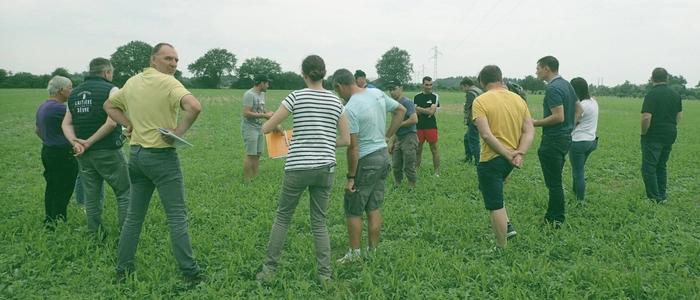
Adapting dairy cattle systems to climate Change in Poitou-Charentes

France
Lusignan
Climate change is leading to an increase in the frequency and intensity of climatic hazards, with spring and summer droughts and summer heatwaves in particular. It impacts dairy farming in Poitou-Charentes, in terms of fodder production, animal welfare, and livestock performance. It also reduces groundwater recharge and the possibility to irrigate fodder crops.
We will discuss the feasibility for dairy cattle farmers to diversify their forage system and use more drought-adapted fodders (e.g. sorghum, fodder beets).
Farmers, chamber of agriculture Charente Maritime Deux-Sèvres,
Regional organic farming federation Bio Nouvelle Aquitaine,
Farmers’ cooperatives Agrial, Innoval and Copavenir,
Milk control (CLS),
Supplier Océalia, PDO Charentes-Poitou butter,
Agricultural school Venours,
Livestock Institute IDELE,
Research Institute for Agriculture,
Food and the Environment INRAE
Marsault Adèle, IDELE
Novak Sandra, INRAE FERLUS
Toffolini Quentin, INRAE UMR Agronomie
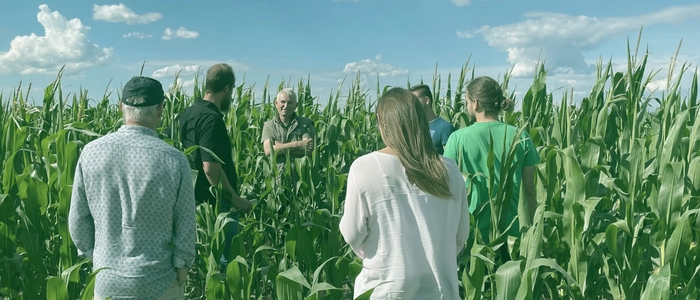
Regenerative Farming Living Lab

Slovakia
PD Krakovany-Straze, Skolska 401/8, 922 02 Krakovany
To improve soil quality through regenerative farming practices to produce healthy food:
- To apply relevant EU science-based methods for collection/analysis of data on soil quality through better cooperation of farmers with researchers
- To create a structure and business model for the LL to make it sustainable (based on best practices)
- To strengthen the LL by attracting other/more farmers via demonstration and dissemination activities – to move from LL led by single farmer (leader) to multi-actor one
- To become the leading LL in RF in the EU by applying for know-how (Soil Mission HEU calls) and its implementation in an international environment.
Presenting practices of 10 years of experience in Regenerative Farming in arable crops via various demonstration communication and dissemination activities.
Extension of proven regenerative farming methods to several farms in Slovakia, and in longer-term perspective in Europe and beyond
Improve the health of the soil, carbon storage, and water retention in the farming area – to ensure fewer floods, higher yields, and thus healthy food and healthy people
Fewer soil losses and thus fewer natural disasters created by erosion
Farm
PD Krakovany-Straze (PD Krakovany)
Research organisation
National Agricultural and Food Research Center (NPPC)
LL Coordinator
Bioeconomy Cluster (BEC)
Daniel Acs, BEC
Jan Hegyi, PD Krakovany
Beata Houskova, NPPC
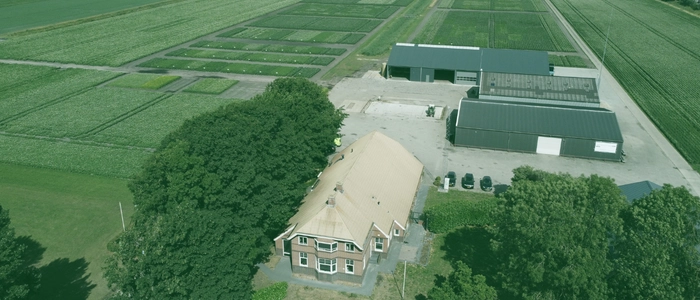
Climate Smart Water Management Veenkoloniën

Netherlands
Noorderdiep 211, 7876 CL Valthermond
Due to climate and land use change, water supply and water
demand in the Veenkoloniën is changing leading to higher
pressure on the available water causing water shortages. This
requires the development of new climate smart water
solutions for storage and use and finding new balances in an
adapted water management at the farm and regional level.
The Living Lab will focus on the development and testing of concrete
climate smart water management solutions like aboveground
water storage, beneficial on-farm and regional level. It will
promote learning via workshops for local arable farmers and
other stakeholders to raise awareness and exchange
experiences on the challenges of climate change and drought
in the Veenkoloniën. Tools will be developed for farmers to
support decision-making and give insight into the costs and
benefits of implementing climate smart water solutions on
farm level.
Farmers,
Waterboard Hunze en Aa’s,
Innovatie,
Veenkoloniën,
Farm of the Future
Jorieke Potters, WUR
Emma Knol, WUR
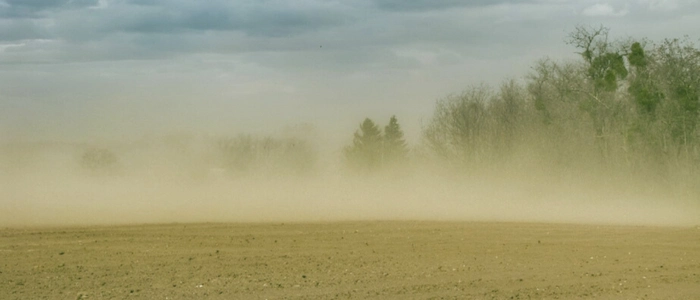
Soil moisture conserving soil cultivation practices

Hungary
Sand Ridge (Danube-Tisza interfluve)
Sand Ridge, Hungary contends with climate challenge such as frequent droughts, resulting in water scarcity and unstable crop yields. The region faces a reduction in soil organic matter, emphasizing ecosystem vulnerability. Soil texture is sand and sandy loam that has originally low content of colloid size particles that help soil structure formation that helps soil biodiversity. Elevated summer soil temperatures add an additional layer of stress, highlighting the need for effective
climate adaptation and sustainable resource management.
The Living Lab is dedicated to co-creating and adapting farming techniques in collaboration with stakeholders to combat challenges like drought, soil degradation, climate change, and yield instability. This initiative aligns the new techniques with existing legislation, governmental programs, and rules for agricultural subsidies. Furthermore, the Living Lab emphasizes knowledge transfer for the adoption of these techniques and conducts real-life experiments in farm settings to explore methods and principles tailored to the specific characteristics of farmers’ fields in local contexts. It means tailoring practices of regenerative agriculture principles (ie cover cropping, intercropping, reducing tillage, crop diversification etc) to the characteristics of the region.
Farmers,
Researchers,
Policymakers,
Advisors,
Paying agency managing agricultural subsidies,
Kiskunok a Vízért Association,
Kislépték Association
Judit Berenyi Uveges, ÖMKi
Csillag Bittermann, ÖMKi
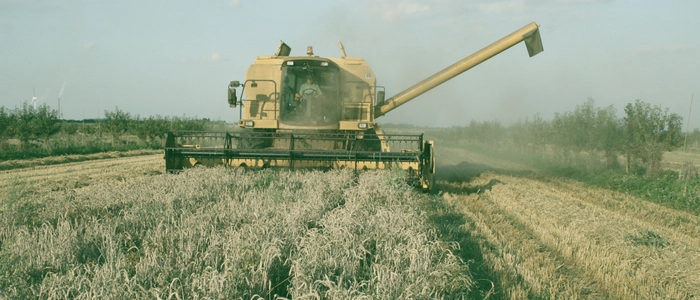
Climate Smart Agroforestry in Practice

UK
Whitehall Farm, Ramsey Road, Farcet, Peterborough, PE73DR
Climate change led volatile weather patterns are an increasing challenge for farmers. Agroforestry has a multifunctional role as climate smart farming practice in both mitigation of carbon emissions but more importantly adaptation to extreme environmental pressures affecting soils, air, water, and biodiversity. The aim and purpose of this UK Living Lab will be to utilise the silvoarable system in the context of climate smart farming and allow farmers an opportunity to learn firsthand how to adopt agroforestry.
Development of a platform to facilitate information exchange between farmers & stakeholders across planning, establishment, management market access, and links to relevant research. To provide a mechanism for peer-to-peer learning and farmer training. Practical elements and direct access to simple economic models are missing links.
Abacus Agri,
RASE/ Innovation for Agriculture,
Defra,
Natural England,
Forestry Commission,
Cranfield University,
Woodland Trust,
OF & G,
RSPB,
GWCT
Stephen Briggs, Abacus Agriculture
Ian Knight, Abacus Agriculture
